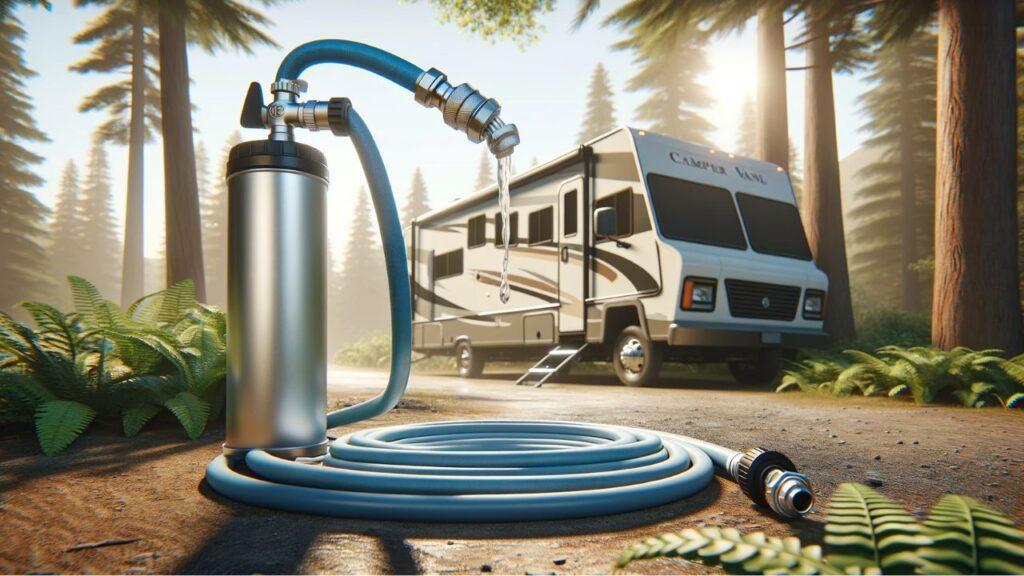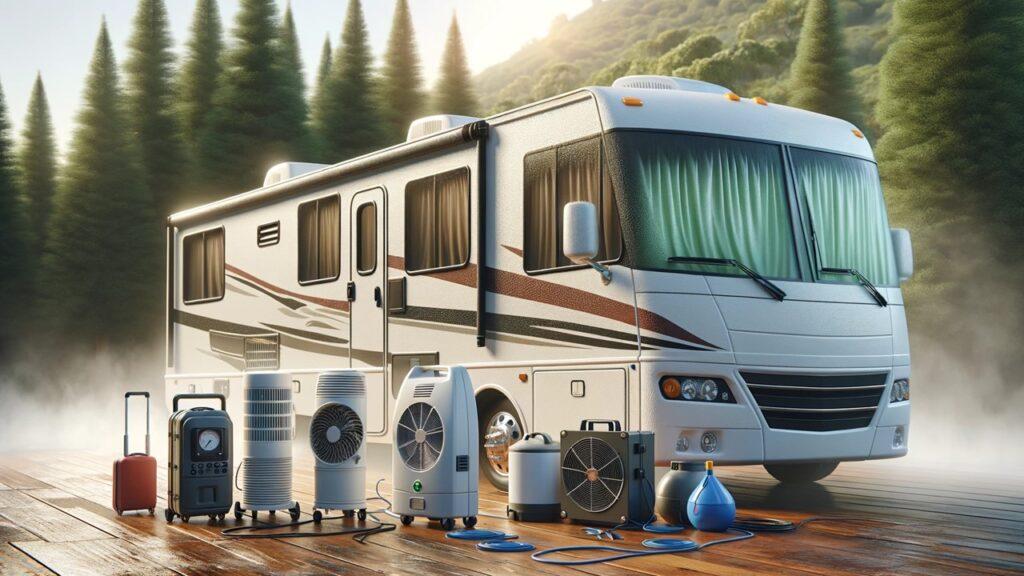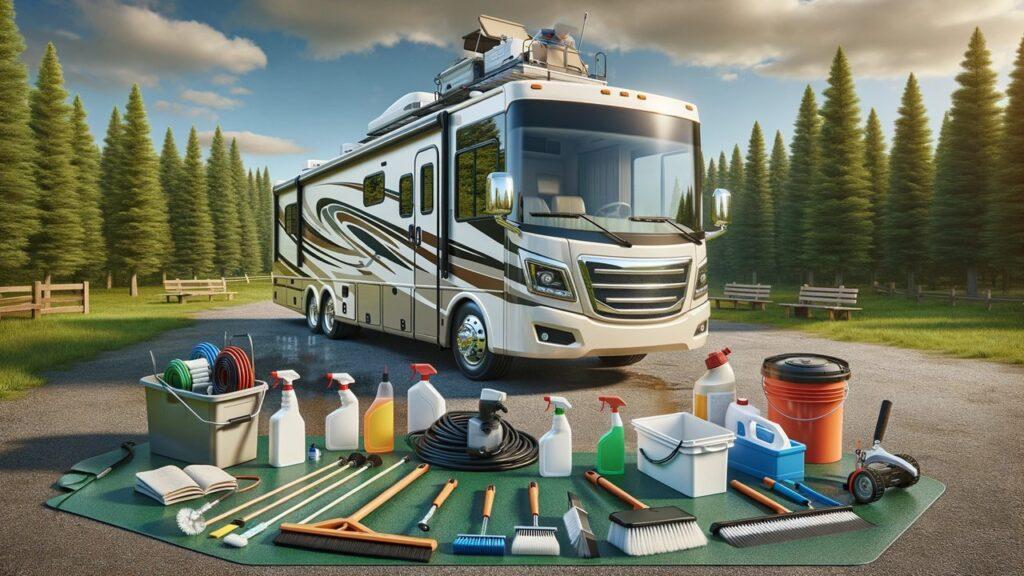
Maintaining your RV’s hinges and locks is crucial for a hassle-free journey. When doors creak or locks jam, they not only diminish your RV experience but can also compromise your safety. Well-maintained locks and hinges contribute significantly to your RV’s longevity, ensuring smooth trips and secure stops along the way. The guide, “how to properly lubricate and maintain RV door hinges and locks,” dives into this essential upkeep. Furthermore, regular maintenance helps prevent unexpected expenses, extending your RV’s lifespan. Moreover, proper lubrication minimizes wear and tear, maintaining functionality over time. Attention to detail in these areas leads to seamless travels, reducing stress and ensuring enjoyment.
Types of Hinges and Locks Used in RVs
The doors on campers, trailers, and motorhomes are fitted with various hinges and locks. Understanding their types and characteristics helps you maintain them effectively.
RV hinges can be continuous or discrete. Continuous hinges, also known as piano hinges, run the length of the door, offering even support and stability. Discrete hinges include butt and strap hinges, which are positioned at intervals and offer varying support levels.These hinges are often made of stainless steel or aluminum for durability, ensuring smooth operation and rust resistance.
RV locks include deadbolt and cam locks. Deadbolt locks provide extra security, preventing forced entry, while cam locks, typically used on compartments and cabinets, offer quick access and secure storage.
Signs of Wear and Tear
RVs see heavy use, which can wear down hinges and locks. Look for sticking hinges, creaking sounds, and difficulty closing doors—these indicate lubrication or replacement needs. Rust, corrosion, or visible cracks signal hinge replacement. For locks, sticking, jamming, or difficulty turning keys are signs of wear, necessitating cleaning or replacement.
Beyond these initial signs, there are subtler indications that your hinges and locks may need attention. For instance, doors that don’t swing freely or have difficulty remaining open can point to lubrication issues. Over time, dust, dirt, and other particles can accumulate in the hinge joints, creating friction and causing stiffness. Similarly, doors that don’t align correctly when closed or have gaps at the seams can indicate worn hinges that need replacement.
For locks, a key that doesn’t insert smoothly or requires jiggling to turn might be a sign of internal wear or misalignment. If the key feels loose or turns too easily, it may indicate worn lock components, risking compromised security. Corrosion or rust inside the lock mechanism can further hinder smooth operation, leading to difficulty locking or unlocking the door.
To mitigate these issues, regularly inspect your hinges and locks. Open and close the doors, listening for unusual sounds and feeling for resistance. Examine the hinge pins and joints for rust, cracks, or wear. For locks, insert the key and check its operation, ensuring it turns smoothly and engages securely.
Addressing these signs early is crucial. Regular lubrication can resolve many sticking issues, but persistent problems may require hinge or lock replacement. Replacing hinges with higher-quality or more durable materials can extend their lifespan, preventing similar issues in the future. For locks, consider using a graphite-based lubricant or replacing worn components to restore smooth operation and security. Frequent checks and maintenance help ensure your RV’s hinges and locks remain in top condition, contributing to a seamless, enjoyable journey.
Tools and Materials Needed for Maintenance
Properly maintaining hinges and locks on your RV requires specific RV mechanics tools and materials. This section provides an overview of what’s necessary.
Essential Tools for the Job
You’ll need screwdrivers, wrenches, and pliers for removing hinges and locks. For cleaning and lubrication, a cloth or brush helps remove debris. For lubrication, choose a suitable lubricant such as silicone spray or WD-40, designed to penetrate moving parts and prevent rust. A cleaner like rubbing alcohol or a degreaser clears any buildup.
Choosing the Right Lubricants and Cleaners
Lubricants include silicone spray, which repels dirt and dust, and WD-40, which offers rust protection and smooth operation. Cleaners like rubbing alcohol or degreasers remove buildup, ensuring effective lubrication.
Maintaining your RV’s hinges and locks is essential for a smooth journey. Understanding types of hinges and locks, recognizing signs of wear, and utilizing the right tools and materials contribute to seamless trips. Furthermore, the right lubricant and cleaner choices extend hinge and lock longevity. Consistent maintenance reduces stress, enhances security, and ensures enjoyable travels.
How to Lubricate RV Door Hinges
Regular maintenance of RV door hinges is a simple yet critical aspect of your RV’s upkeep, ensuring doors operate smoothly and quietly. This section offers a detailed, step-by-step guide on how to properly lubricate RV door hinges, supplemented by tips on maintaining them over time.
Step-by-Step Guide to Lubricating Hinges
Begin by cleaning the hinges. Using a soft cloth or brush, remove dirt and debris. Apply a degreaser if needed, wiping it clean before applying lubricant. Choose a lubricant suitable for outdoor use, like silicone spray or lithium grease, which resist dirt and moisture effectively. Spray or apply the lubricant evenly across the hinge, ensuring it seeps into the pin. Open and close the door several times to distribute the lubricant inside the hinge.
Re-lubricate hinges every six months or immediately if the door squeaks or sticks. Inspect for rust or excessive wear during each maintenance session, which might indicate a need for earlier lubrication.
Common Mistakes to Avoid
Avoid using too much lubricant, which can attract dirt and cause build-up. Never use cooking oils; these are not meant for mechanical applications and can gum up mechanisms. Ensure the hinge area is clean before applying new lubricant to prevent trapping dirt.
How to Maintain RV Door Locks
Maintaining your RV’s door locks is not just about smooth operation—it’s about ensuring your safety and security while on the road. This section details how to keep these locks working properly, helping you address common issues effectively.
Step-by-Step Guide to Maintaining Door Locks
Start by cleaning the lock cylinder. Use a small brush or compressed air to remove dirt from the lock mechanism. Apply a graphite-based lubricant, which is ideal for locks as it won’t attract dust. Insert the lubricant nozzle directly into the keyhole and give a short spray. Move the key in and out several times to distribute the lubricant.
Regularly check locks for signs of wear and damage. Ensure the locking mechanism operates smoothly without resistance. Lubricate and inspect locks at least once a year, or more frequently if you travel often or in dusty conditions.
Troubleshooting Common Lock Issues
If a lock is sticking, first clean and lubricate it as described. If issues persist, check for misalignment or damage, which may require adjustments or replacements. For jammed locks, avoid using excessive force with the key; instead, lubricate and gently wiggle the key to free the mechanism.
Proper lubrication and maintenance of your RV’s hinges and locks are not just chores; they are essential practices that enhance your RV’s functionality and security. By following these detailed guidelines, you can ensure that every departure and every return to your RV is smooth and secure. Furthermore, addressing maintenance needs promptly prevents minor issues from becoming major inconveniences, ensuring your focus remains on enjoying your adventures.
The Importance of Regular Maintenance
Regular maintenance of RV door hinges and locks is essential to ensure smooth operation and longevity. This section discusses the benefits of consistent upkeep and the potential consequences of neglect.
Advantages of Regular Upkeep
Maintaining your RV hinges and locks has multiple benefits. Regular lubrication reduces friction, preventing wear and tear on moving parts. This prolongs the lifespan of hinges and locks, ensuring they function properly for years to come. Furthermore, smooth-operating doors and locks contribute to an enjoyable RV experience, reducing noise and preventing inconveniences on the road. Consistent maintenance also ensures safety; functioning locks prevent break-ins, protecting your belongings and giving you peace of mind.
Increased functionality is another benefit. Regular cleaning and lubrication keep hinges and locks working smoothly, allowing easy access to all areas of your RV. This saves time and minimizes stress during trips. Additionally, well-maintained hinges and locks can reduce costs in the long run by preventing the need for frequent replacements or repairs.
Potential Risks of Neglect
Neglecting maintenance of hinges and locks can lead to several issues. Sticking hinges and locks can worsen over time, leading to more significant problems, such as doors not closing properly or locks jamming entirely. This can compromise your RV’s security, making it susceptible to break-ins and theft.
Corrosion and rust can also occur, weakening the structural integrity of hinges and locks. This not only affects functionality but also necessitates costly replacements. Moreover, if doors and locks malfunction during a trip, it can disrupt your journey, causing stress and inconvenience.
Seasonal Maintenance Tips for RV Hinges and Locks
Seasonal changes can affect the performance of your RV hinges and locks, making seasonal maintenance crucial. This section provides tips to prepare your RV for different seasons.
Preparing for Winter
Cold weather poses unique challenges for RV hinges and locks. Freezing temperatures can stiffen lubricants, making it harder for doors to open and close. To prevent this, use cold-resistant lubricants like silicone spray, which can withstand low temperatures and maintain functionality.
Storage is also essential for winter. Before storing your RV, thoroughly clean and lubricate hinges and locks, removing dirt and debris that can cause rust. Check for any signs of wear or damage, replacing parts if needed. Additionally, ensure your RV is parked in a dry, sheltered area to minimize exposure to moisture, which can lead to corrosion.
Getting Ready for Summer
Summer travel requires adjustments and checks to ensure your RV hinges and locks work smoothly. Clean and lubricate them before your trip to remove dust and debris accumulated during storage. Choose a lubricant that repels dirt and dust, such as silicone spray, to minimize build-up during travel.
Inspect hinges and locks for signs of wear or damage. Replace any worn parts to prevent issues on the road. Furthermore, regularly check for lubrication needs throughout the summer, as increased use can lead to faster wear.
Maintaining your RV’s hinges and locks regularly is essential to ensure smooth operation, longevity, and security. Regular upkeep prevents costly repairs, ensures doors and locks function properly, and protects against security breaches. Seasonal maintenance tips, including winter preparation and summer checks, can further safeguard against weather-related issues. By addressing these factors, you can enjoy seamless, stress-free travels, allowing you to focus on the adventure at hand.
Professional vs. DIY Maintenance
Maintaining RV hinges and locks is crucial for a smooth, secure journey. The choice between doing it yourself or calling a professional depends on the complexity of the task and your comfort level. Let’s explore both options to help you make an informed decision.
When to Call a Professional
Some situations demand professional intervention. For example, significant damage to hinges or locks, such as cracks, excessive rust, or broken components, requires a professional’s expertise for proper repair and replacement. Additionally, complex lock mechanisms, such as digital or biometric locks, necessitate specialized knowledge for repairs or recalibration. A professional can also conduct a comprehensive inspection, identifying underlying issues you might overlook, thus preventing recurring problems.
Furthermore, seasonal changes or extensive travel can take a toll on RV hinges and locks. In these cases, a professional’s assessment ensures your RV is ready for the journey ahead, avoiding unexpected malfunctions during your travels.
DIY Maintenance Tips and Tricks
For simpler maintenance tasks, DIY options offer flexibility and cost savings. Regular cleaning and lubrication can be handled at home. Use a cloth or brush to remove debris, then lubricate hinges with silicone spray or lithium grease. For locks, clean and lubricate the internal mechanism with a graphite-based lubricant, ensuring smooth operation.
However, avoid common mistakes, such as applying too much lubricant, which can attract dust and dirt, causing further build-up. Check for wear or damage, replacing parts as needed to prevent issues from worsening. Online resources, including tutorials and manuals, offer guidance for complex tasks, empowering DIYers to handle maintenance confidently.
Regular maintenance can also prevent minor issues from escalating, reducing long-term repair costs and ensuring smooth travels.
Wrapping It Up!
Maintaining RV hinges and locks is essential for a safe, trouble-free journey. Regular checks and upkeep prolong their lifespan, ensuring smooth operation and reducing repair costs. For complex repairs or significant damage, consider professional assistance to prevent recurring issues. Professionals bring specialized knowledge, identifying hidden problems and ensuring proper repairs. For simpler tasks, DIY maintenance offers flexibility and cost savings, allowing you to take control of your RV’s upkeep. Remember, regular maintenance prevents minor issues from escalating, ensuring seamless travels and secure stops, contributing to an enjoyable RV experience. Whether you opt for professional or DIY maintenance, prioritize regular checks to guarantee secure locks and smooth hinges, enhancing your RV adventure.
Related FAQs
What Lubricant Is Right for RV Hinges and Locks?
Silicone spray or lithium grease is ideal, offering durability and resistance to dirt and moisture.
How Often Should I Check My RV’s Locks?
Regularly inspect locks every six months or immediately if they become difficult to operate.
Can I Use WD-40 on RV Hinges?
Yes, WD-40 can be used, but consider alternatives like silicone spray for lasting protection.
How Can I Prevent Locks from Rusting?
Use a graphite-based lubricant to maintain internal mechanisms and store your RV in a dry area.
Is Professional Maintenance Necessary Annually?
Not necessarily, but yearly professional inspections help identify and address potential issues early.

Jack Rivers is a long-time RVer, a husband, and a dad who’s traveled solo and now with his family. He’s learned a lot from years on the road, sometimes the hard way. From quiet mornings parked by the woods to messy evenings with the kids and a busted heater, he’s been through it all. Miles writes to share the real stuff, the small wins, and the lessons that make RV life worth it, no matter who you’re traveling with.







